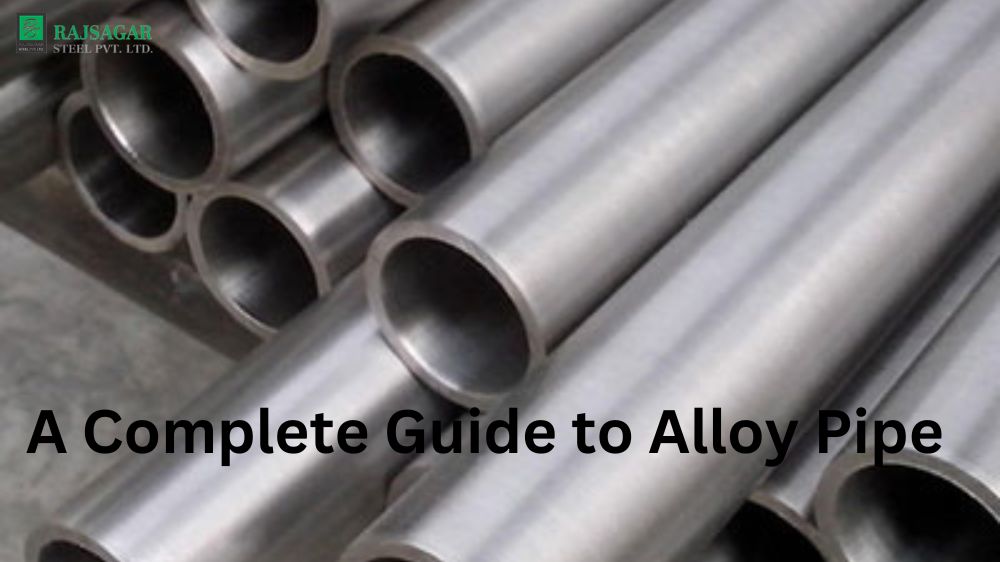Alloy pipes are becoming increasingly popular among engineers and architects due to their exceptional high-temperature strength, corrosion resistance, and durability characteristics. When it comes to selecting the right pipe for your project, it is essential to know the properties, uses, and maintenance requirements of various alloy pipes to ensure the best performance and longevity. This comprehensive guide offers a complete insight into alloy pipes, such as nickel, chrome, and copper, their properties, applications, and maintenance procedures.
What is Alloy Pipe?
Alloy Pipe is a type of steel pipe made from a combination of two or more metals that have been melted together to create an alloy. This alloyed material typically has better properties than traditional carbon steel, such as improved strength and increased corrosion resistance. Generally, Alloy Pipes are used for applications in industries like oil & gas, petrochemical processing plants, API lines etc. Different grades of alloy pipes are available in the market with varying mechanical and physical properties such as excellent machinability, formability and weldability, high-temperature resistivity, superior ductility and toughness, making them suitable for different types of fabrication work. The most common alloying elements used in making these pipes include nickel alloys (nickel + chrome), copper alloys (copper + manganese), stainless steel (chromium + carbon), aluminium etc., which provide additional durability and strength at elevated temperatures.
A Comprehensive Guide to Alloy Pipe
Properties of Alloy Pipes
Alloy pipes consist of two or more elements mixed to form a unique material with enhanced properties to withstand high temperatures and corrosion-resistant settings. The primary properties of alloy pipes are high-temperature, excellent corrosion resistance, and negligible sensitization to stress corrosion cracking. Pipes made of nickel, copper, and chrome alloys are known for their superior high-temperature strength, while stainless steel alloys offer excellent corrosion resistance.
Uses of Alloy Pipes
- Alloy pipes are used in various industries due to their superior strength and resistance to corrosion.
- One of the most common uses for alloy pipes is in the oil and gas industry, where they are used to transport crude oil and natural gas.
- Alloy pipes are also commonly used in the automotive industry, as they can withstand high temperatures and pressures.
- Another common use for alloy pipes is in the construction industry, where they are used to transport water and other fluids.
- Alloy pipes are also often used in the food and beverage industry, as they can resist corrosion from acidic substances.
Maintenance of Alloy Pipes
Regular maintenance is crucial to ensure the longevity of alloy pipes. The maintenance procedures include regular cleaning, installation of protective coatings, and regular inspections. Cleaning ensures that any dirt, debris, or corrosive material does not accumulate on the pipes’ surface, leading to damage. Protective coatings provide a layer of protection against corrosive materials and high-temperature environments. Regular inspections involve checking the pipes for any cracks, dents, or leaks that may affect their performance.
Advantages of Alloy Pipes over Other Pipes
- Alloy pipes are made from a mixture of metals, which gives them superior strength and durability compared to other types of pipes.
- Alloy pipes are corrosion-resistant and can withstand high temperatures, making them ideal for use in various industries.
- Alloy pipes are available in various sizes and shapes, making them suitable for various applications.
- Alloy pipes are easy to install and require little maintenance, making them a cost-effective option for many businesses.
- Alloy pipes have a long lifespan and can be recycled or reused, making them an environmentally friendly option.
Conclusion:
Alloy pipes offer numerous benefits, including high-temperature strength, corrosion resistance, and durability, making them ideal for use in various applications such as chemical processing, power generation, and oil and gas exploration. Understanding alloy pipes’ properties and maintenance requirements are crucial to ensure optimal performance and longevity. Nickel, copper, and chrome alloys are the most commonly used alloys for their exceptional properties, including high-temperature strength, corrosion resistance, and sea-water resistance. With the proper maintenance procedures, such as regular cleaning, protective coatings, and inspections, alloy pipes can offer extended service life and reliable performance under harsh environmental conditions.

